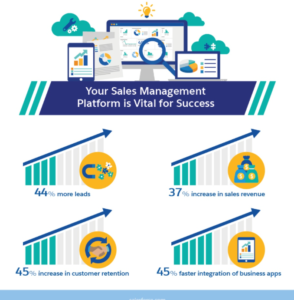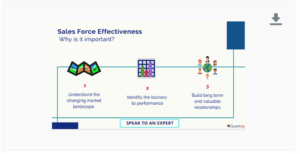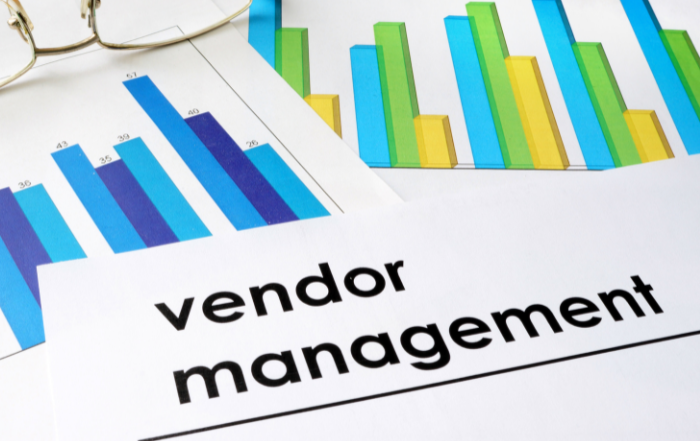What is Salesforce Managed Services?
Research shows that 60% of companies find it challenging to administer and maintain their Salesforce ecosystem. In order to address this issue, companies tap Salesforce managed services to address their concerns.
Knowing what is Salesforce managed services and choosing the right provider is just one of the critical tasks you have to tick off your checklist as a forward-thinking business owner.
If you are aiming to grow your brand, you need to make your customers happy. In a society where customer experience is an essential part of the formula to succeed, there’s always room for improvement. For example, 9 out of 10 Americans say that customer service is a huge factor when deciding whether or not to engage with a certain business.
As a business owner, you need to make sure that you have a well-oiled machine to meet the demands of customers today.
What is Salesforce Managed Services and How Can It Transform Your Business
The goal of Salesforce, hailed as the world’s leading customer relationship management (CRM) platform, is to encourage “customer-centric automation.” It provides a simplified and efficient cloud-based environment where your sales, marketing, service, and IT teams collaborate to guarantee customer satisfaction and, subsequently, contribute to better sales growth.
With Salesforce, you can digitize and streamline all the customer relations processes — from sales to marketing to service. To manage your Salesforce account, however, and make the most of this CRM platform, you need a dedicated team.
This is where hiring a third-party Salesforce managed services provider comes in handy. They offer a proactive approach in implementing, maintaining, and improving how you use the said technology.
Here are the top benefits of Salesforce managed services:
1. Access to In-depth Technical Skills and Expertise
Managing an organization’s Salesforce environment demands a particular skill set. And more often than not, these skills are not inherently present in a business. With a professional Salesforce managed services provider, you can tap into a team that has both the expertise and diversity you’ll need at specific points of Salesforce integration and administration.
While you heighten your sales campaigns and customer relations efforts with their help, your own workforce can focus on other vital aspects of the business.
2. Scalability and Flexibility
Instead of hiring and spending resources to keep your in-house Salesforce admin technically competent, outsourcing this vital service is the more economical route to take. Why? They offer flexibility through tailored management solutions. These services can also be scaled up or down, depending on your needs and goals at a given time.
3. Aids Your Digital Transformation
Running a business in a digital world requires more than just having an innovative offering and a great entrepreneurial spirit. Undergoing digital transformation — which means leveraging technology to make business processes more efficient — is now a necessity.
Salesforce has the four main types of technological tools (i.e., social, mobile, analytics, and cloud) needed to facilitate your company’s digital transformation cost-effectively.
With this cloud-based platform, you can provide remote access to your people and concerned vendors. You can also integrate mobile-based technologies into your sales lifecycle. Moreover, it serves as a convenient analytical tool that offers helpful insights based on the data it obtains and processes.
4. Easy Updating and License Management
Salesforce gets updated from time to time. If you have an external team managing your Salesforce environment, you’d have a dedicated team to deploying these important updates and new features.
Because this platform uses a licensing model, that team will also be responsible for ensuring that you’re maximizing the money you’re shelling out for licensing costs. They will also help you analyze if you need to upgrade your licensing (e.g. do you need to add new users to facilitate the expansion of your Salesforce capabilities?).
5. Higher Return on Investment
Salesforce is an investment. And like any other investment, you want it to yield significant returns. Your external Salesforce management team will help you drive higher ROI from this platform through their up-to-date skills and knowledge. They will optimize their services based on your target figures and key performance indicators, allowing you to keep costs to a minimum.
Given the many advantages that come with hiring external Salesforce managed services, the next thing you should consider is finding the right provider.
Questions to Ask Before Hiring Salesforce Managed Services Professionals
Each organization has varying Salesforce needs. To augment your immediate and future Salesforce demands, you must select a vendor that has a proven Salesforce expertise.
Here’s how to choose Salesforce managed services provider for your business.
Do They Specialize in Salesforce?
You must verify that your provider is technically knowledgeable on all things Salesforce. Check if they have the proper and updated certification. This guarantees that they’re abreast with the latest system updates.
Apart from their credentials, you also need to examine their experience. What do their previous clients say about them? Do they have experience working with a business with similar nature and needs as yours?
What is the Scope of Their Services?
Salesforce is a rather huge ecosystem. When choosing a managed services provider, consider the range of their services and see if it covers your specific needs. If you don’t have something specific in mind yet, it pays to tap a vendor that offers proactive and common services.
Either way, you have to make sure that they can deliver those services within your preferred timeline. This entails knowing their implementation methodology and process, and the time it takes to finish the different aspects of Salesforce management (e.g., auditing, project identification, measurement.
How is the Quality of Their Customer Service?
As in any other vendor, your Salesforce management provider must have reliable customer service. After they complete the initial implementation, what kind of Salesforce support do they offer? Also, are their customer-facing staff easy to reach out to and work with? Good rapport is important because it can make the whole Salesforce integration and administration experience more seamless.
What is Their Pricing Scheme?
While pricing should not be the deciding factor, it is still crucial to know how your vendor will charge their services. Do they have a flexible pricing scheme? Do they have a package that fits your budget? Are the costs justified by the projected ROI?
How do they ensure security?
Because the platform is cloud-based, data security is a huge concern. Ask your prospective provider: How will they access your Salesforce cloud? How many people will have that access? Keep in mind that if any of your sensitive business information is breached, especially those that concern your customers, addressing it can be expensive. It can also negatively impact your overall reputation.
Only 45% of companies currently have an external Salesforce managed services provider. Nonetheless, they all have a generally satisfactory experience working with such a third-party partner when it comes to maximizing their Salesforce investment. Because this type of vendor plays the critical role of helping drive your business forward, you have to keep in mind the aforementioned factors before inking a deal with one.
Rainmaker Helps You Maximize the Potential of Salesforce to Grow Your Business
If you want to boost and maximize your Salesforce environment, Rainmaker offers the solution that you’re looking for.
Rainmaker provides proactive Salesforce managed services that allow businesses like yours to facilitate your Salesforce innovation journey and get a high ROI in the process. They eliminate any unnecessary technical complexity from your effort to boost customer relations, and ultimately, hit (and even exceed) your target sales growth.
Their services cover the basics of Salesforce administration (e.g. user management, training, how-to support), security and user auditing, project identification and definition, and backlog management among others. Contact us today and learn more.








